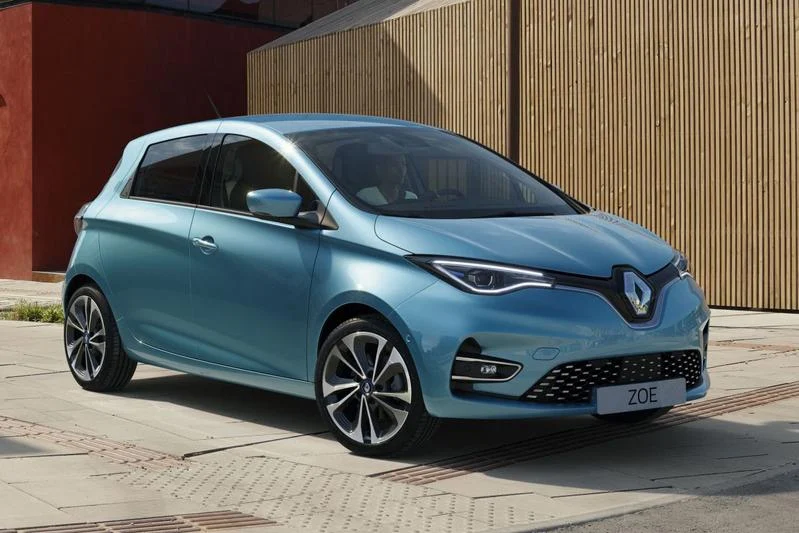Living in Germany? Leasing Renault Zoe could be almost free!
Germany is currently subsidizing the vehicles so aggressively that leasing the best-selling five-door Renault Zoe EV is now becoming almost free!.
Not a fake news!. It’s true that Renault is offering the base model Zoe essentially for free, however the main reason for that is that they added an extra of 4.000€ to the already existing EV subsidies (which are 3.000€ by the government and 3.000€ by the OEM - Renault). Hence one is able to get the Zoe for basically 10.000€ off.
Guess the German government decision will not only help to steer and speed up the BEV market development by providing free leasing BEV but also to stimulate all linked BEV infrastructures which is not yet mature today following the fact that more and more people would accept to have their first try with the free leasing system so finally an efficient interactive effect can be achieved between the two.
Not a fake news!. It’s true that Renault is offering the base model Zoe essentially for free, however the main reason for that is that they added an extra of 4.000€ to the already existing EV subsidies (which are 3.000€ by the government and 3.000€ by the OEM - Renault). Hence one is able to get the Zoe for basically 10.000€ off.
It’s also worth noting that the mentioned leasing is 24 months and doesn’t include the battery. At the end of the leasing period it either needs to be purchased or Renault continues to receive a leasing fee for the car. If one decides to purchase the car with above subsidies, the leasing rate quickly increases.
As a result of the financial incentives, prospective buyers in France and Germany are flocking to virtual showrooms. A free new Renault Zoe for 3 years sounds like a great deal to me! However, this is more a quirk of new government incentives being placed on top of existing Lease End Values, and therefore isn't sustainable.
Think about it - a free 3 year lease implies that the car is worth the same today as it is in 3 years time, and likely similar to price of a new car with subsidies in 3 years time. Grab this deal as fast as you can as it won't be coming back 😉
As a result of the financial incentives, prospective buyers in France and Germany are flocking to virtual showrooms. A free new Renault Zoe for 3 years sounds like a great deal to me! However, this is more a quirk of new government incentives being placed on top of existing Lease End Values, and therefore isn't sustainable.
Think about it - a free 3 year lease implies that the car is worth the same today as it is in 3 years time, and likely similar to price of a new car with subsidies in 3 years time. Grab this deal as fast as you can as it won't be coming back 😉









I have been intrigued by the tendency of European governments to employ the tools at their disposal to drive consumer choice regarding fuel economy and emissions (taxing higher displacement engines to encourage buying smaller displacement and more fuel efficient engines, diesel fuel / petrol taxation at the pump, etc). Compared the US policy of relying on OEMs to comply with regulations (ZEV, LEV, PZEV, etc) to drive consumer change. The resulting pitiful market share of alt drivetrain vehicles after 20 years on the US market woud seem to call for a new approach.
ReplyDeleteSo one would think. But subsidies are not favor at the moment. And there is no political will to otherwise incentivize the car buying public to bear the extra costs of purchasing EVs at this stage in their development. That leaves the private sector to act. Can the OEMs bear to lose any more money per EV unit than they're losing already? The late Sergio Marchionne's answer was "no". Is it time to reconsider that position?
DeleteFocusing on future technologies is the only hope for a country like Germany. Supporting early adopters helps to accelerate the process. Cleaner air and less traffic noise are a nice side effect.
ReplyDeleteSadly , the charging noise of the Zoe is terrible, I could not stand to have this in front of my house. Still, the next one will be electric and will probably have a '3' in its name. Electric cars are so much more fun to drive.
I think part of the problem is that consumers believe they need 500km of battery range. In fact most would do fine with much less as long as they have level 2 charging at home. I purchased a Standard Range Plus Model 3 with the 52kWh pack and put over 48,000km on it in a year including a 4500km road trip. I have yet to find the range inconvenient and the carbon cost of that pack is much lower than say a 75kWh or 100kWh pack.
ReplyDelete